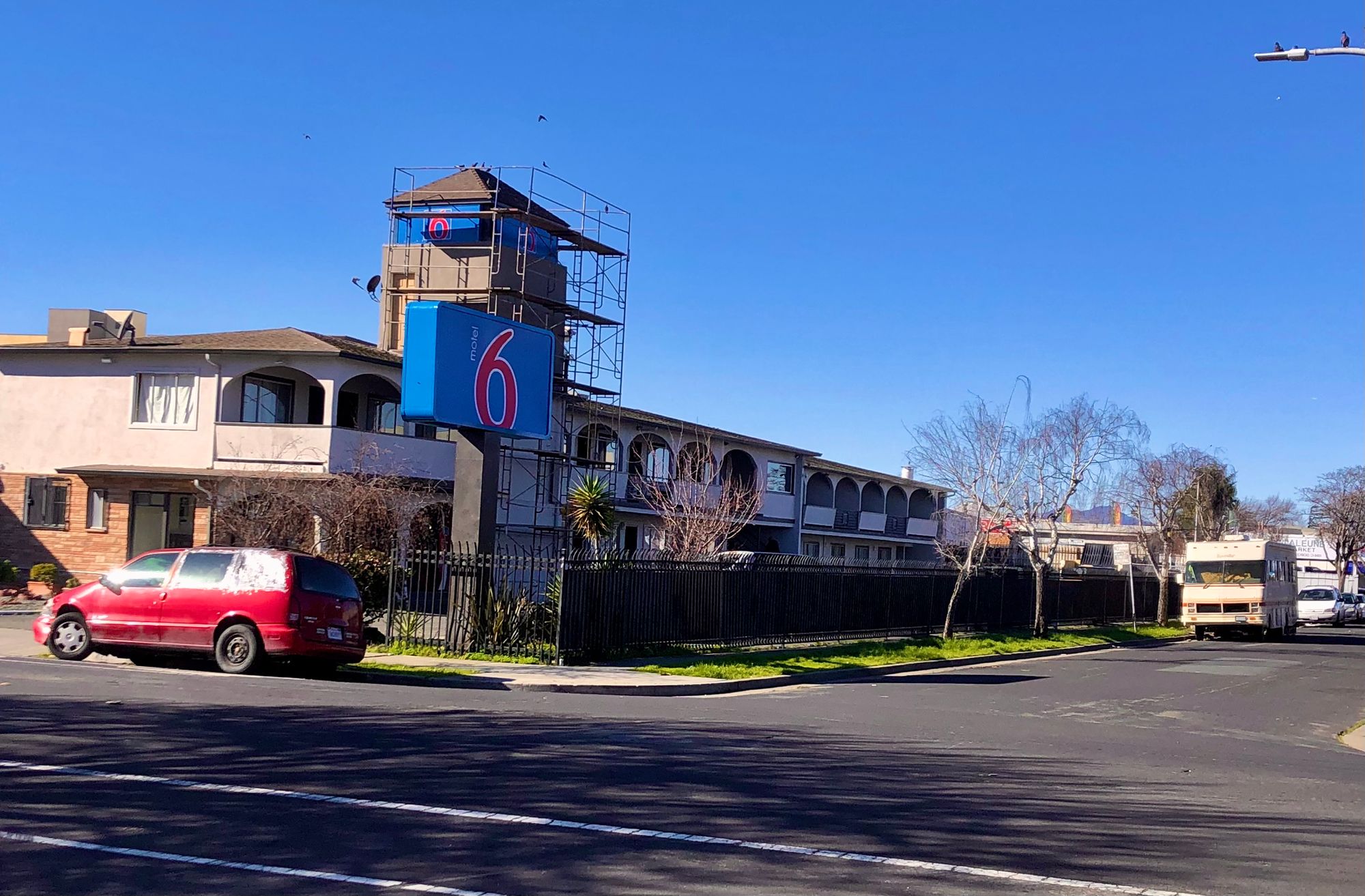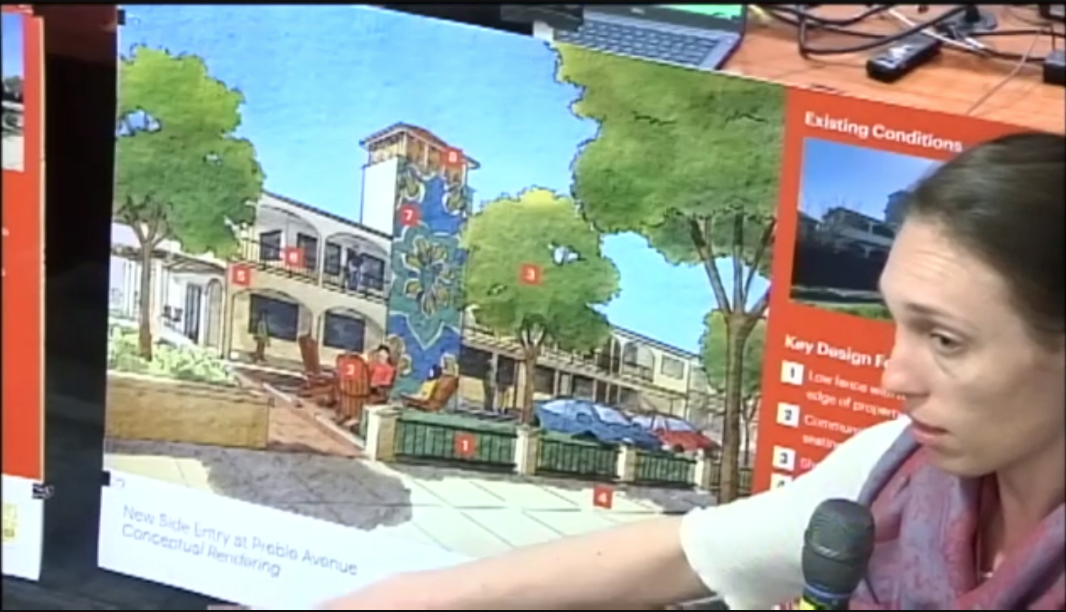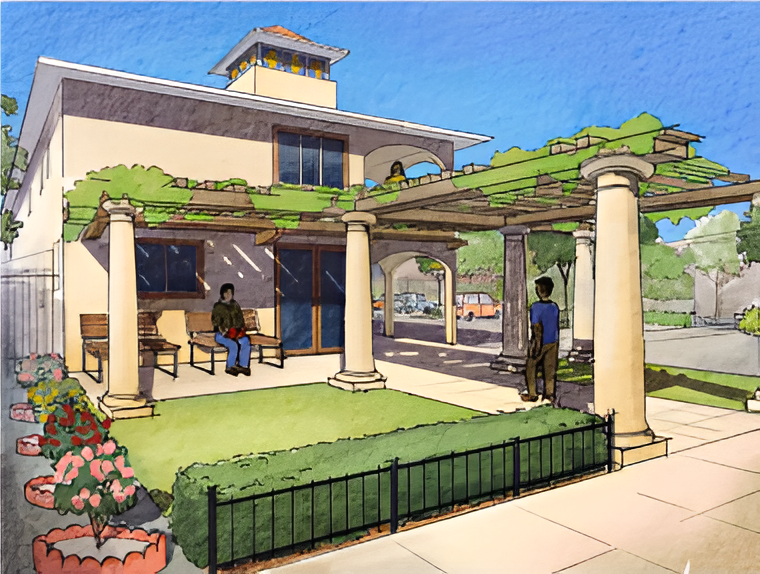

City leaders seeking up to $10 million in state funds to purchase and renovate the former Civic Center Motel into permanent supportive housing for the city’s chronically homeless held a community workshop at City Council Chambers Monday night to solicit feedback on the proposal.
The city is partnering with Walnut Creek-based affordable housing developer Novin Development to convert the existing Motel 6 into 48 studio apartments and a one-bedroom apartment reserved for an onsite property manager. The Civic Center was rebranded as a Motel 6 earlier this year.
 Grandview IndependentLinda Hemmila
Grandview IndependentLinda Hemmila
Permanent supportive housing combines affordable housing with services to promote housing stability, improve health and well-being, and enhance the overall quality of life, according to proponents.
Novin Development would be the principal developer and owner of the property. They would be responsible for purchasing the building, renovating it, and reviewing the regulatory agreement recorded against it.
As of last year, California’s Homekey Program has created 6,863 units across 60 projects statewide and has awarded $1.9 billion to 116 projects.
District 6 Councilmember Claudia Jimenez said staff has been working really hard for this opportunity to apply for the grant to bring more housing and address unhoused issues.
“We are not saying we are getting the money right now, but we are hoping with all the hard work of the staff and many other people, we can get this,” Jimenez said.
Tenants would only pay 30 percent of their income towards rent and utilities and have access to onsite wraparound services provided by Insight Housing, said Novin Development Manager Nithya Vemireddy.
“We want to target the chronically homeless. That is our intention for this project. We are working closely with the city and the county about who will be living in these units,” Vemireddy said during the workshop.
Accountability is a primary concern of the State of California in the Homekey Program. Novin would be required to provide the state with lists of outcomes from the services providers as well as the property management, Vemireddy said.
“Not only are we concerned about making sure that each individual has the services they need to be successful, but that they are kept in their homes,” she said.
Iman Novin, president of Novin Development, says they are trying to strike a balance between making people realize the site is permanent housing and creating a secure home with additional security measures.
“We will have a monitored security camera as well as an onsite property manager there 24-7 to provide additional security. Parking permits will be assigned to the residents so people who don’t live in the community aren’t parking or loitering there,” Novin said.
While still working on the project scope, Novin expects to spend $50,000 to $85,000 renovating each unit.
“The building requires full electrical upgrades, new air conditioners, new furniture, and bathroom upgrades. There is quite a bit of work to turn a current Motel 6 into permanent residence,” Novin said.
The state grant provides $150,000 per studio or one-bedroom unit with up to $200,000 for assisted units for chronically homeless populations.
Novid said the state quickly informs applicants if their Homekey applications are successful but requires construction to be completed in about 12 months.
“The last time we applied, it was about three months after we submitted our application that we received an award of funds,” Novid said

Caroline Cochran, an Associate at Opticos Design, shared renderings for the property, including a new welcoming front entrance on 24th Street and an outside seating area with Adirondack chairs for residents.
“You can see there is a high fence that is kind of solid. It blocks much of the view. It is not the most friendly or welcoming frontage,” Cochran said.
Renderings show low hedges and walls, which Cochran said make the property more visible and engaging to the neighborhood and people walking by.
“The experience on the property is more connected to what is going outside. Just a more engaging, active place,” Cochran said.
The city has worked over the past year on a homeless strategic plan to make sure everyone has a secure place to sleep and understand what measures can make an impactful change on homelessness, said Community Development Director Lina Velasco.

“The vast majority of people experiencing homelessness in Richmond are adult-only households. While we have families with children, it is not the majority; it is mostly adults around 25-54,” Velasco said.
The project would create permanent housing and include a 55-year affordability covenant with a regulatory agreement and oversight to make sure all occupants met the affordability convenient for extremely low-income tenants.
Vice Mayor Gayle McLaughlin said the project will move members of the unhoused community into a safe, secure, and healthy place to live so they can move forward with their lives. The project will also improve a challenged area with high crime.
“The remodeling of this building both inside and outside will really improve the entire area immensely,” McLaughlin said.
Jessi Taran, who said she was a homeless resident of Richmond, questioned why more unhoused people did not attend the meeting.
“Since these residences are ostensibly being built for people who are unhoused, I would think you would want their input on what you are building because their input is what is going to matter most,” Taran said.
